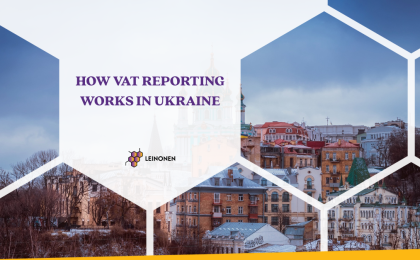Below you will find a brief overview of the most significant points.
The final abolition of controls on VAT
The wording of the Tax Code of Ukraine (TCU) has been clarified to avoid ambiguous interpretation by the tax authorities making it clear that TCU applies to income tax and not VAT
The thresholds for declaring controlled transactions have been increased
This latest amendment establishes the following limits:
• Annual taxpayer income from all activities exceeds 50 mln. UAH. (In the current edition – 20 mln. USD.)
• The volume of transactions with a single counterparty exceeds 5 mln. UAH. (Currently the threshold is 1 mln. UAH and applied to each individual group transactions).
(It should be noted that the amendment also simplifies the application of the rules for calculating threshold TCU and identifies those transactions that fall under the TCU control.)
Changing penalties
The amendment changes the penalties for failing to report on controlled transactions and TCU documentation. Comparisons are shown in this table:
Offence | Old Penalty | Amended Penalty |
Failure to report controlled transactions | 100 times minimum wage | 300 times minimum wage |
Omission of controlled transactions from report | 5% of transaction value | 1% of the transactions omitted from the report, but not more than 300 times minimum wage for all undeclared transactions |
Failure to submit full TCU documentation | 3% of the transaction, but not more than 200 times minimum wage for all undeclared transactions | 3% of the transaction, but not more than 200 times minimum wage for all controlled transactions carried out during the relevant tax accounting year |
Submission of application for declaration
The amendment does away with the requirement to submit an annex to the declaration of income tax on controlled transactions (introduced on 1st January 2015) as its purpose was not clear.
Special rules for the analysis of export-import operations of commodities
The amendment makes the Cabinet of Ministers of Ukraine (CMU) responsible for determining the list of commodities to which the special rules for analysis of export-import operations, and for commodity exchanges, apply.
The amendment also specifies that commodity values are calculated according to the stock market as established by the Cabinet (unlike the current version, which requires the application of average prices).
Declaration periods
The periods during which the taxpayer must provide additional information at the request of tax authorities, has increased from 10 to 30 days. An appropriate change given that experience shows that 10 days is insufficient to prepare a full response.
Amendment of the wording to the rules on the control of transactions with unrelated agent
The wording of Paragraph 39.2.1.5 of the Code provides that a transaction between related parties involving an unrelated agent can be considered as under control, provided this broker does not perform significant functions. This wording has been amended to prevent the risk of the rule being applied to individuals.
Changing the criteria for the definition of “low-tax” States
The law shortens the list of reasons for which a particular State may be included in the list of “low-tax jurisdictions” as approved by the Cabinet Ministers of Ukraine (CMU). The new rules state that non-disclosure in the public domain of information on the ownership structure of companies is no longer a reason for inclusion on the CMU list.
The list will be based upon the following two criteria:
• States in which the income tax rate is 5 or more percentage points lower than in Ukraine;
• States with which no international agreements exist on the exchange of information.
It is currently difficult to predict how this will change the criteria to review the list of countries because the CMU did not disclose the specific reasons for inclusion on the list.
Application of the Law
The amendment makes the rules of law applicable to controlled transactions undertaken throughout 2015 (and not just on the date of entry into force of the law).
Other changes and adjustments
In addition, there are several amendments to the legislation aimed at clarification and the elimination of mistakes, including the definition of business transactions, tax basis for early check of controlled operations, profitability indication methods within the TCU, etc.




